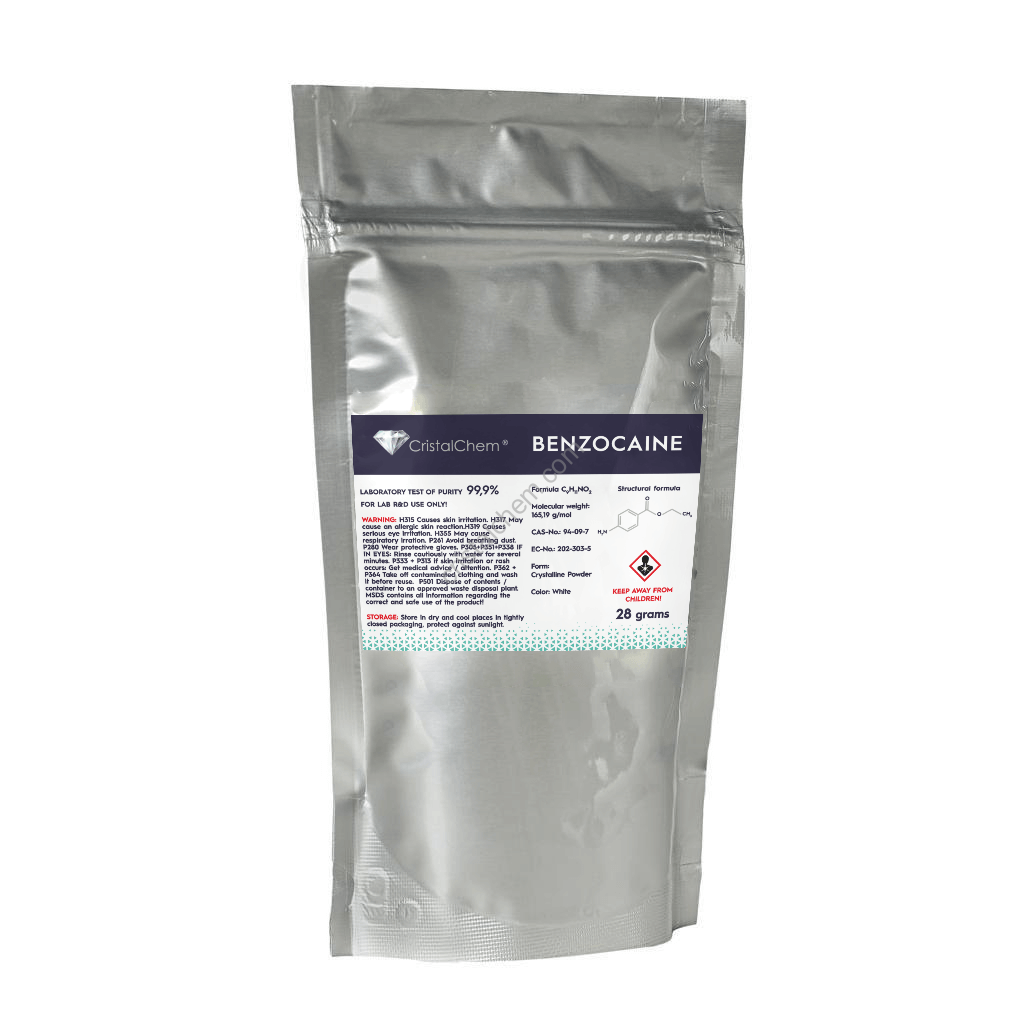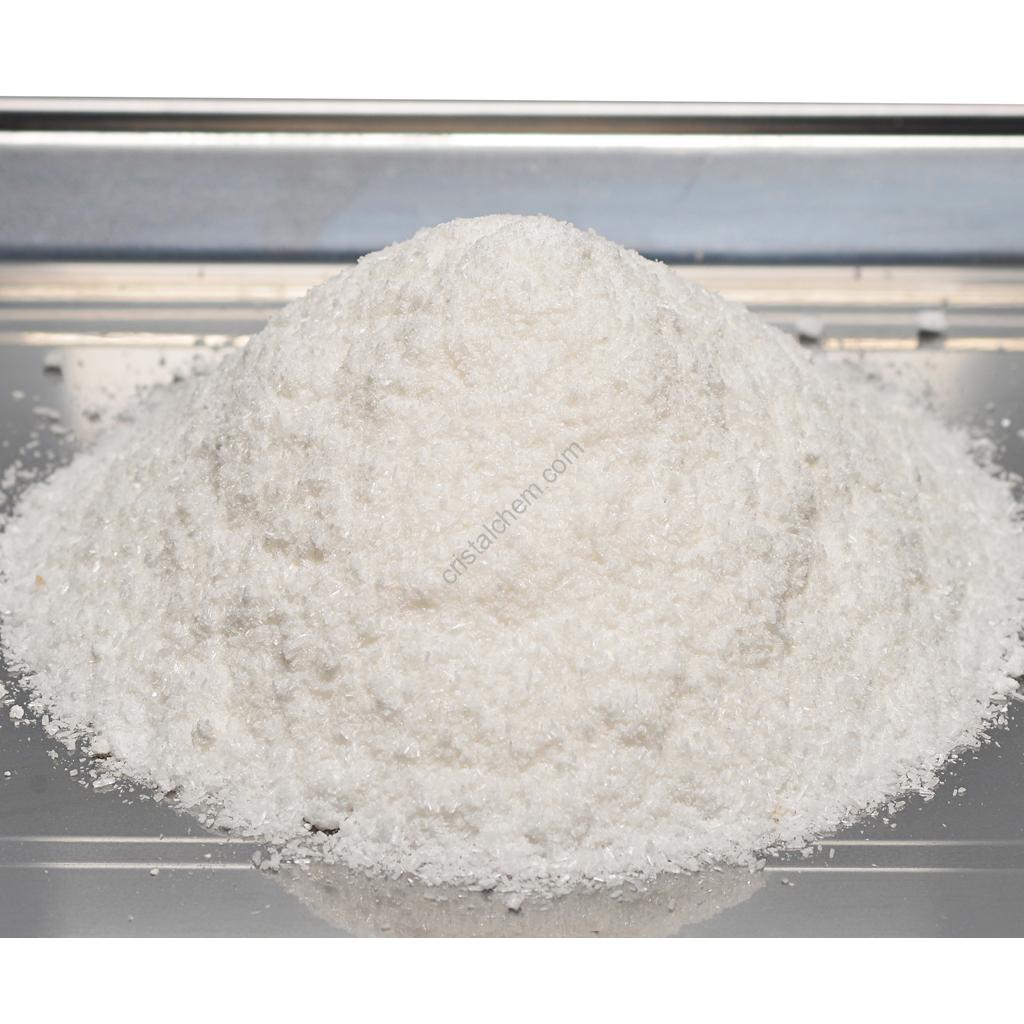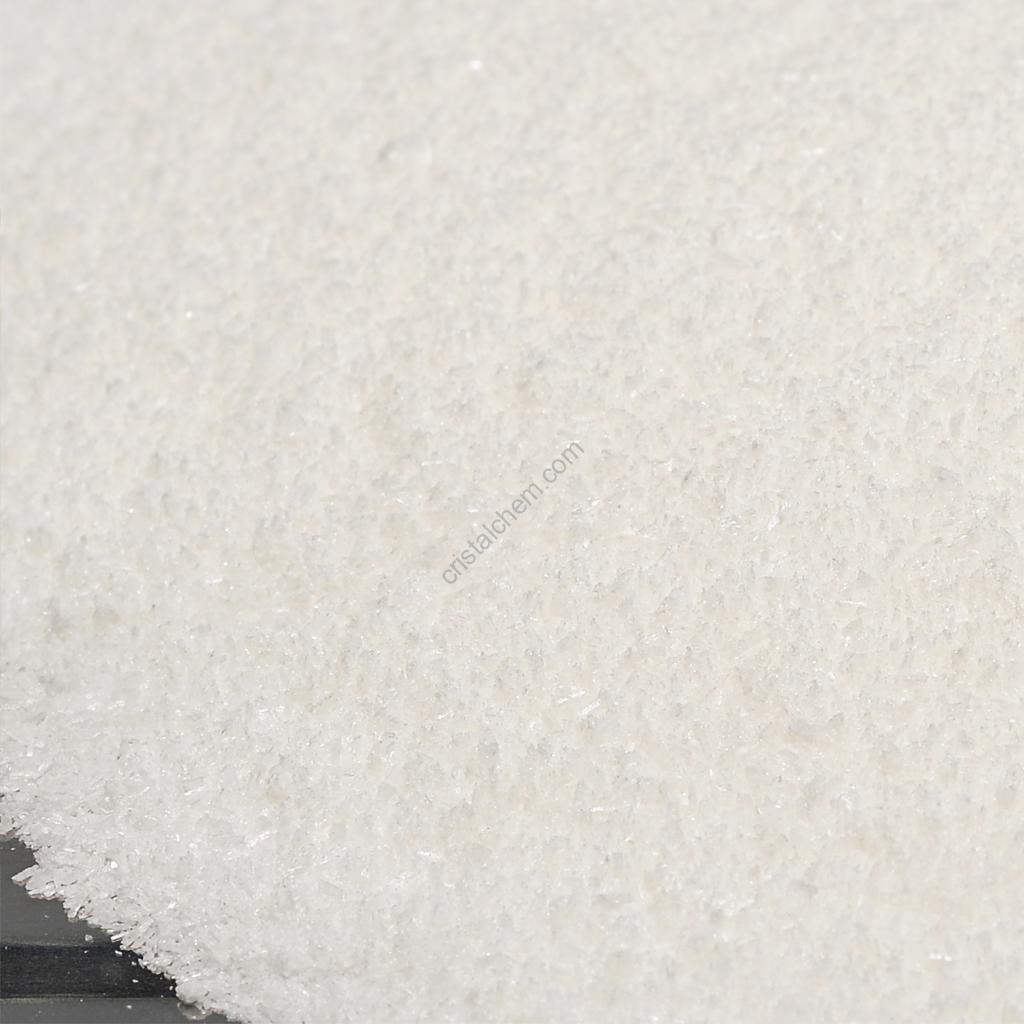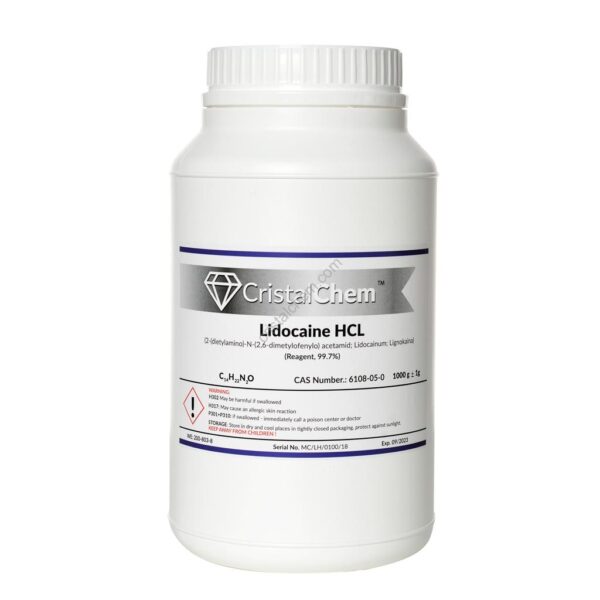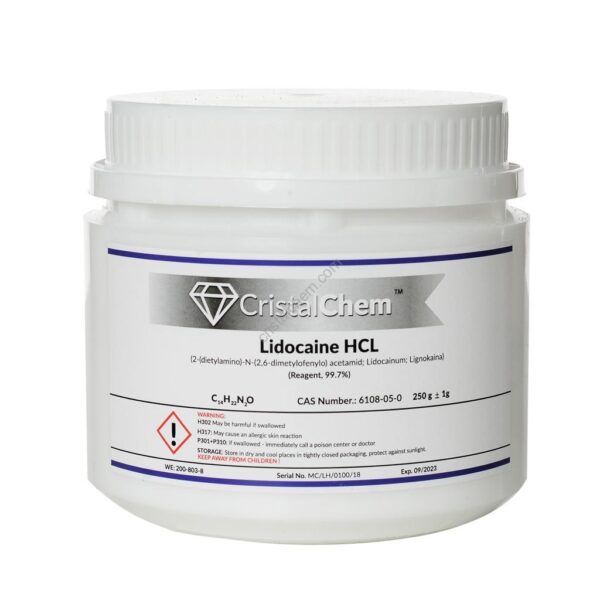Description
Physical and chemical properties of benzocaine:
Form: Solid
Color: White
Odor: Odorless
Molar mass: 165.19 g/mol
Melting point: 89-92°C
Boiling point: 172°C
Density: 2.75 g/cm3
Solubility in water: Slightly soluble
Solubility in organic solvents: Soluble in ethanol (300 g/L)
Warnings:
H315: Causes skin irritation.
H317: May cause an allergic skin reaction.
H319: Causes eye irritation.
H355: May irritate respiratory system.
P261: Avoid breathing dust.
P280: Wear protective gloves.
P305+P351+P338: IF IN EYES: Rinse cautiously with water for several minutes.
P333+P313: If skin irritation or rash occurs: Get medical advice/attention.
P362+P364: Take off contaminated clothing and wash before reuse.
P501: Dispose of contents/container in approved waste disposal facility.
Storage:
Store in dry and cool places in tightly closed containers, protected from sunlight.
The information contained below is informative, scientific and research. The product is intended for professional use.
The mechanism of action of benzocaine involves blocking the conduction of nerve impulses in the area of application, leading to a reduction in pain perception. Benzocaine works by blocking sodium channels in cell membranes, which inhibits the flow of sodium ions and thus hampers the conduction of nerve impulses.
Benzocaine is well-known for its anesthetic and analgesic properties, but it also offers other benefits. It is used in the treatment of insect bites, sunburns, and skin conditions such as atopic dermatitis. Benzocaine can also be used to alleviate itching and burning sensations on the skin.
Benzocaine acts quickly and lasts for a long time. It usually takes effect within minutes after application and can persist for several hours.
How benzocaine works
Benzocaine’s mechanism of action involves inhibiting the conduction of nerve impulses, resulting in numbness in the area where it is applied. This is achieved by blocking sodium channels in the cell membranes of nerves, preventing the transmission of nerve impulses.
Use of benzocaine
Benzocaine is used in various local anesthetic products such as ointments, sprays, gels, and sunburn treatments. It is also utilized in dentistry and medicine for procedures like surgeries, catheter insertions, blood sampling, and pain relief associated with injuries and burns.
Solubility of benzocaine
Benzocaine has low solubility in water, meaning it is difficult to dissolve in water and requires the addition of a suitable solvent. However, it is highly soluble in organic solvents like ethanol, methanol, acetone, chloroform, ether, and acetic acid. Its solubility properties are beneficial in the pharmaceutical industry, where benzocaine is commonly used as an ingredient in topical medications such as creams or gels applied directly to the skin or mucous membranes.
Benzocaine spray
Benzocaine is frequently used in sprays as a local anesthetic. Benzocaine spray can be applied to alleviate pain and discomfort from minor injuries, skin irritations, sunburns, sore throat, and oral discomfort. The spray is directly applied to the affected area, and benzocaine blocks sodium channels in the nerve cell membranes, reducing the transmission of nerve impulses. As a result, the area where benzocaine is applied becomes less sensitive to stimuli, leading to pain relief and comfort.
Condoms with benzocaine
Benzocaine can also be used in the production of delay condoms, which help prolong ejaculation and extend the duration of sexual intercourse. These condoms contain a small amount of benzocaine, typically around 4%, applied to the inner surface of the condom. Benzocaine acts as a local anesthetic, reducing the sensitivity of the penis and consequently prolonging the time required for orgasm and ejaculation.
What is a benzo?
It’s important to note that the term “Benzo” is often associated with benzocaine, but it is a misconception. “Benzo” is commonly used as an abbreviation for psychotropic drugs that contain benzodiazepines. These two products should not be confused as they have entirely different mechanisms of action and purposes. Benzocaine is an organic chemical compound used as a local anesthetic, available as a white or slightly yellowish powder with a weak odor and a bitter taste. It is one of the most commonly used local anesthetics and is available in various forms such as ointments, creams, gels, aerosols, and liquids. Benzocaine finds application in the fields of medicine and dentistry for local pain relief and alleviating discomfort associated with various procedures such as surgeries, catheter insertions, blood sampling, injuries, and burns.

